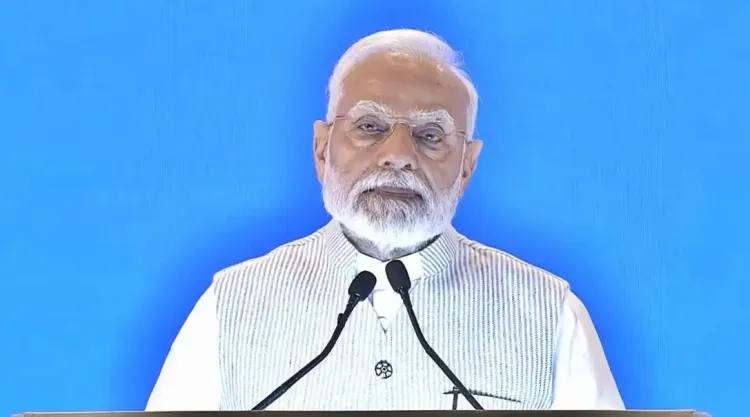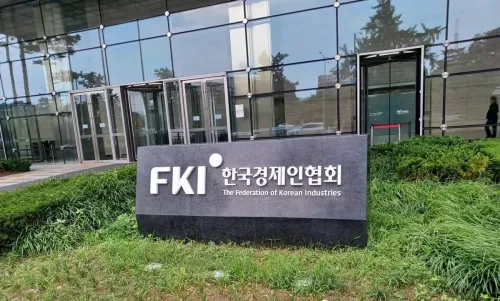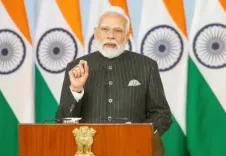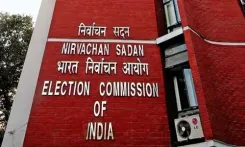Are Indian youth truly ready and disruptive, setting research milestones?

Synopsis
Key Takeaways
- YUGM Conclave aims to unite stakeholders to enhance innovation.
- India is committed to modernizing its education system.
- Investment in research has significantly increased.
- Youth are achieving notable milestones in various sectors.
- Collaboration between industry and academia is essential for innovation.
New Delhi, April 29 (NationPress) The youth of India is currently poised for disruption, achieving significant research milestones across various sectors, as articulated by Prime Minister Narendra Modi during his address at the YUGM Conclave on Tuesday.
YUGM, which translates to 'confluence' in Sanskrit, is a pioneering strategic conclave that brings together leaders from government, academia, industry, and the innovation ecosystem.
The Prime Minister emphasized that YUGM represents a gathering of stakeholders committed to realizing Viksit Bharat and aims to enhance the nation's innovation capacity and advancements in deep technology.
“Our mission is to equip the youth with skills that foster self-reliance and establish India as a global hub for innovation,” the PM stated.
Reaffirming India’s stronghold in research and development, he remarked, “Our youth is both ready and disruptive today, reaching milestones across multiple sectors.”
PM Modi referenced innovations such as the 410-metre-long first Hyperloop test track developed by researchers from IIT Madras and 'brain on a chip' technology, which can store and process data in 16,500 states within a molecular film, created by scientists at the Indian Institute of Science (IISC).
He pointed out that “the future of India rests on our youth,” and emphasized the significant role of the education system in nurturing future leaders.
“We are modernizing the education system to align with the demands of the 21st century,” PM Modi proclaimed.
The Prime Minister highlighted the DIKSHA (Digital Infrastructure for Knowledge Sharing) platform, under which the One Nation, One Digital infrastructure initiative has been launched.
“This infrastructure is AI-driven, scalable, and is being utilized to develop textbooks in over 30 Indian languages and seven foreign languages,” he added.
He also praised the research ecosystem in the country, noting that gross expenditure on research has more than doubled—from Rs 60 crore in 2013-14 to over Rs 1.15 crore today.
To further promote research in India, the Prime Minister announced several initiatives, including advanced research parks, the creation of the Anusandhan National Research Foundation (ANRF), the One Nation, One Subscription model, and the PM Research Fellowship.
“The innovation culture in our country is flourishing—rising from 40,000 patents in 2014 to over 80,000 today. This indicates that the youth are receiving necessary support,” he remarked, while also highlighting India’s growth and representation in global rankings, such as the QS rankings.
Additionally, the PM mentioned the establishment of Indian campuses in Abu Dhabi (IIT Delhi) and Tanzania (IIT Madras), as well as the establishment of foreign university campuses in India.
“This will facilitate academic exchanges, research collaborations, and cross-cultural learning opportunities for our students,” he noted.
He urged industry leaders to support young researchers by providing guidance and funding to promote larger innovations.
“It is vital that we expedite the journey from idea to prototype to product,” the PM affirmed.
As India swiftly embraces AI, with numerous AI excellence centers emerging, “our vision is to make AI beneficial for India,” he concluded.
The event, held at the Bharat Mandapam, was backed by a collaborative project worth approximately Rs 1,400 crore, funded jointly by the Wadhwani Foundation and government institutions.










